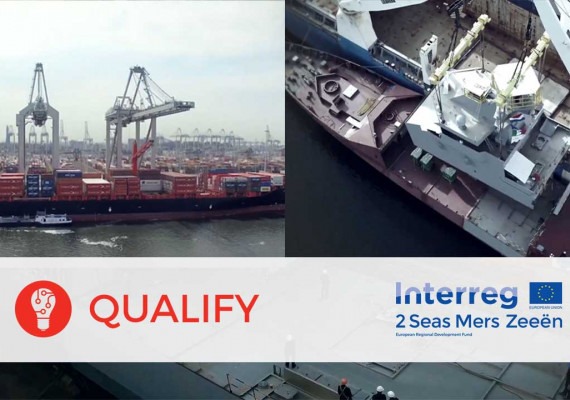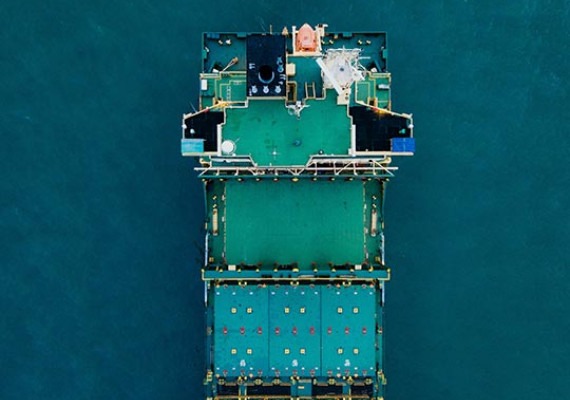QUALIFY
Enabling Qualification of Hybrid Structures for Lightweight and Safe Maritime Transport
Priority Axis
Technological and Social InnovationSpecific objective
Technological Innovation
Lead partner
Stichting Materials Innovation Institute (M2i)Contact
Begindatum
14/08/2017Einddatum
31/12/2021Project budget
3 777 816 €ERDF amount
2 266 689 €ERDF rate
60%Over
Common challenge
The drivers to reduce weight in traditionally heavy loaded structures such as ships demands the development of durable, lightweight solutions that can withstand such loads under extreme conditions. The combination of steels and composites in adhesively bonded structures can reduce weight while preserving strength, leading to lighter and stronger ships. 10% weight reduction triggers a reduction of up to 7% in fuel consumption. The potential savings, along with the manufacturing advantages, have motivated the shipbuilding industry to explore the use of adhesively bonded hybrid joints in primary structures, capable to withstand high loads and guaranteeing safety. At the time, no certification guidelines existed to orient the industry when certifying new designs using such hybrid assemblies, which limited them to secondary structures. QUALIFY sought to provide the necessary knowledge to remove these technological and regulatory barriers, enabling their use in primary structures in shipbuilding. The innovative approach is the combination of state-of-the-art knowledge with the experience of the classification societies and that of end-users: physically based models that describe the adhesive bond performance, were to be further expanded to include the relation to environmental conditions. They were to be extensively tested and validated, giving a reliable prediction of performance in real operating conditions.
Overall objective
Main outputs
Cross border approach
Main Achievements
The maritime industry is facing a wide array of challenges: climate change, call for decarbonisation and an overall need for sustainable operations.
A promising way forward is the reduction of vessel weight leading to less fuel consumption. This asks for the development of a durable, lightweight solution for vessels that can withstand loads under extreme conditions without compromising safety. The use of composite-to-steel (hybrid) joints in primary structures has been explored within the maritime industry because of its potential: less weight, less fuel, same or even better strength, and safer manufacturing. However, the industry was missing the certification guideline for its orientation when certifying new designs using such hybrid assemblies. This has been the challenge tackled by the QUALIFY project. A multi-disciplinary and multi-national team (UK, NL, BE, FR) from academia, industry and classification societies has worked on the QUALIFY project for more than four years to remove the technological barriers that prevented the widespread application of hybrid structures. The project has proven the long-term performance of hybrid joints for different operational loads following a conservative ageing process. Adhesive joints were subjected to multi-level experimental testing supported by finite element simulations. The results were translated to an inspection and monitoring protocol for hybrid adhesive joints and a Guidelines document which covers the entire qualification process of composite-to-steel adhesively bonded joints: design, manufacturing, in-service inspection, and qualification. The document is publicly available on Bureau Veritas’s website. The regulatory framework for the application of hybrid joints in primary structures paves the way towards a more sustainable maritime industry. This lightweight structure realizes a reduction of fuel consumption of up to 7% and a considerable decrease of harmful emissions. The Guidelines document will facilitate the gradual shift from metallic parts towards composite-to-metal structures in many other sectors.
Testimonial
The results of the project have a guaranteed durability due to the massive interest of the maritime industry and many other sectors in adhesive bonding technologies, which is a promising way forward for the reduction of vessel weight leading to less fuel consumption.


